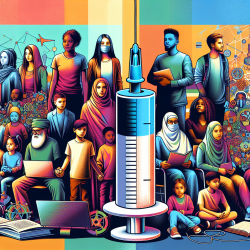Empowering Futures: Transforming School Culture Through Online Therapy
In today's rapidly evolving educational landscape, fostering a positive school culture is paramount to creating environments where children can thrive. As educational psychologists, you play a pivotal role in shaping these cultures. With the advent of online therapy services, such as those provided by TinyEYE, there's an exciting opportunity to enhance school culture and empower students like never before.
The Role of Online Therapy in School Culture
Online therapy, also known as telepractice, is not just a convenient solution; it is a powerful tool that can significantly impact school culture. By providing accessible, data-driven therapy services, we can address the diverse needs of students and foster an inclusive environment. Here's how online therapy contributes to a positive school culture:
- Accessibility: Online therapy breaks down geographical barriers, ensuring that every child has access to the support they need, regardless of their location.
- Consistency: With flexible scheduling, students receive consistent therapy sessions, promoting continuous progress and development.
- Collaboration: Online platforms facilitate collaboration between therapists, teachers, and parents, creating a holistic support system for students.
- Data-Driven Decisions: Online therapy platforms often include tools for tracking progress, enabling data-driven decisions that tailor interventions to each student's unique needs.
Empowering Educational Psychologists
As educational psychologists, your expertise is invaluable in the integration of online therapy into school culture. Your understanding of child development and learning processes positions you to advocate for evidence-based practices that enhance student outcomes. Here are ways you can contribute:
- Championing Online Therapy: Advocate for the inclusion of online therapy services in schools, emphasizing the benefits of accessibility and individualized support.
- Collaborative Planning: Work with school administrators and therapists to develop comprehensive plans that integrate online therapy into the broader educational framework.
- Monitoring and Evaluation: Utilize your skills to monitor the effectiveness of online therapy interventions, ensuring they align with the school's goals and students' needs.
- Professional Development: Engage in continuous learning about telepractice advancements to stay at the forefront of this evolving field.
Conclusion
By embracing online therapy, educational psychologists can help transform school culture into one that is inclusive, supportive, and conducive to learning. TinyEYE's online therapy services provide the tools necessary to make this transformation a reality. Together, we can create a future where every child has the opportunity to succeed.










